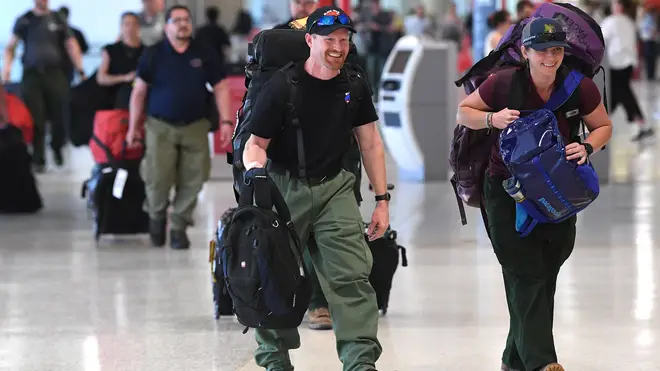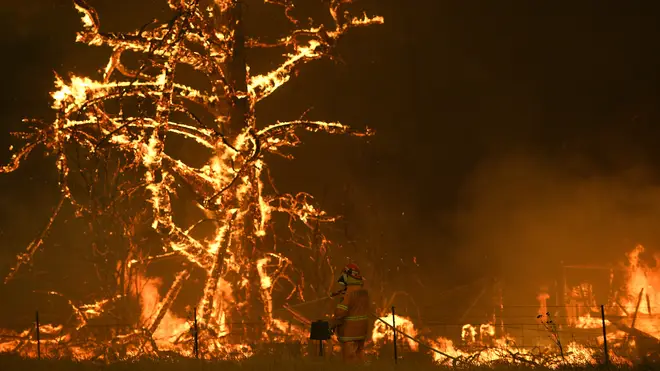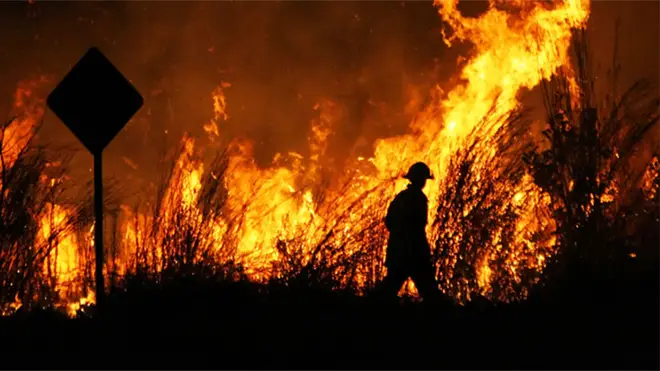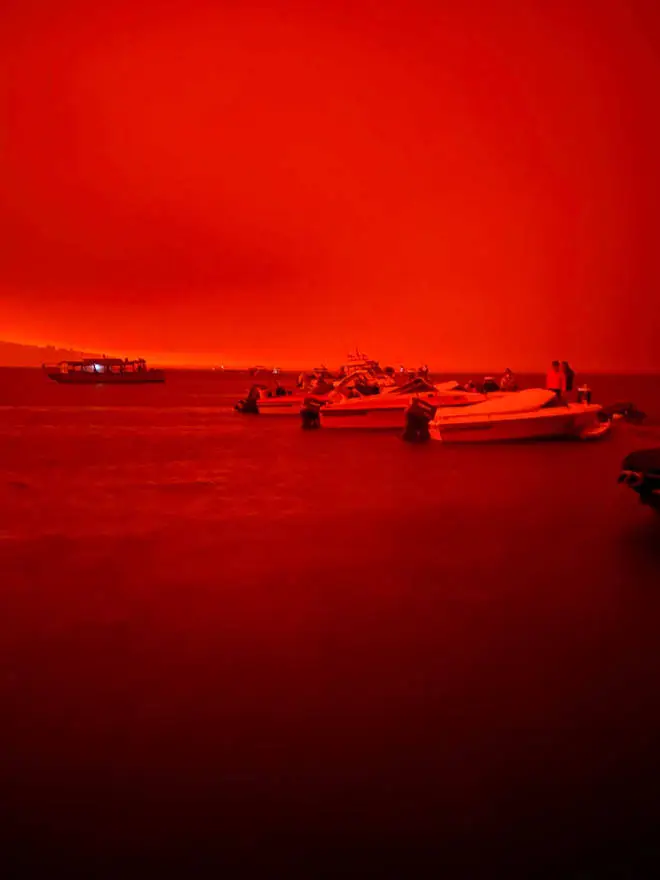
Simon Marks 3pm - 7pm
2 January 2020, 06:50
New South Wales in Australia has declared a week-long state of emergency as the threat from out of control bushfires escalates.
Thousands of tourists have fled Australia's wildfire-ravaged eastern coast ahead of worsening conditions as the military started to evacuate people trapped on the shore further south.
NSW authorities have ordered tourists to leave a 155-mile zone along the picturesque south coast.
"Do not be in this area on Saturday," was the stark warning from New South Wales Rural Fire Service as they took to social media to tell people to leave the region, which is predicted to see extreme fire danger over the weekend, with temperatures forecast to pass 40C.
On Thursday a team of US firefighters arrived in Melbourne to help efforts as blazes across the country are expected to worsen in the coming days.
This brings the number of US and Canadian experts who have flown in to help deal with the crisis to almost 100.

Transport Minister Andrew Constance described as the "largest mass relocation of people out of the region that we've ever seen".
Naval officials said they would open registration for evacuation on Thursday afternoon, with the HMAS Choules able to carry up to 1,000 people on the first trip. The ship is expected to make two or three voyages over coming days, state authorities said.
More than 50,000 people were without power and some towns had no access to drinking water.

Since September, bushfires have killed 18 people and destroyed more than 1,200 homes across Victoria and NSW.
At least 17 people remain missing after fires this week alone as apocalyptic wildfires sweep across parts of the country.

NSW Premier Gladys Berejiklian announced the state of emergency on Thursday, she said the state was preparing for "what could be a horrible day on Saturday."
"We don't take these decisions lightly but we also want to make sure we're taking every single precaution to be prepared for what could be a horrible day on Saturday."
Tourist Leave Zone – South Coast Bush Fires
— NSW RFS (@NSWRFS) January 1, 2020
Dangerous conditions for holiday makers on the South Coast of NSW this weekend
With the widespread power and communications outages across the South Coast please share this information to as many affected people as possible. #nswrfs pic.twitter.com/JvbwrpC1fe
Cooler weather since Tuesday has aided firefighting and allowed people to replenish supplies.
Vehicles formed long lines at petrol stations and supermarkets, with traffic gridlocked as highways reopened.
But fire conditions were expected to deteriorate on Saturday as high temperatures and strong winds return.
"There is every potential that the conditions on Saturday will be as bad or worse than we saw (on Tuesday)," New South Wales Rural Fire Service Deputy Commissioner Rob Rogers said.
Authorities said 381 homes had been destroyed on the New South Wales (NSW) southern coast this week, while 18 people have died since the fires began burning.
On Tuesday the public in some areas were advised to seek refuge on beaches and wharves as the wildfires hit coastal areas, with many residents taking to the sea in boats to avoid the blazes.
One fire moved into the Victoria coastal town of Mallacoota, turning the sky blood-red across the area.
Some 4,000 people were forced to take shelter on the beach in the holiday town in the East Gippsland district along the Pacific coast. Around 4,000 more people were sheltering in community centres in the town.
In Victoria, where 68 homes have burned this week, the military was helping thousands of people who fled to the shore as a wildfire threatened their homes on Tuesday in the coastal town of Mallacoota.
Food, water, fuel and medical expertise were being delivered and about 500 people were going to be evacuated from the town by a naval ship.
"We think around 3,000 tourists and 1,000 locals are there. Not all of those will want to leave, not all can get on the vessel at one time," Victoria Premier Daniel Andrews told the Australian Broadcasting Corporation.
Some 12.35 million acres of land - an area almost the size of Croatia - have burned nationwide over the past few months, with more than 1,300 homes destroyed.

Prime Minister Scott Morrison said the crisis was likely to last for months.
"It (fires) will continue to go on until we can get some decent rain that can deal with some of the fires that have been burning for many, many months," Mr Morrison told reporters on Thursday.
Smoke from the wildfires caused the air quality in the national capital, Canberra, to be the world's worst.